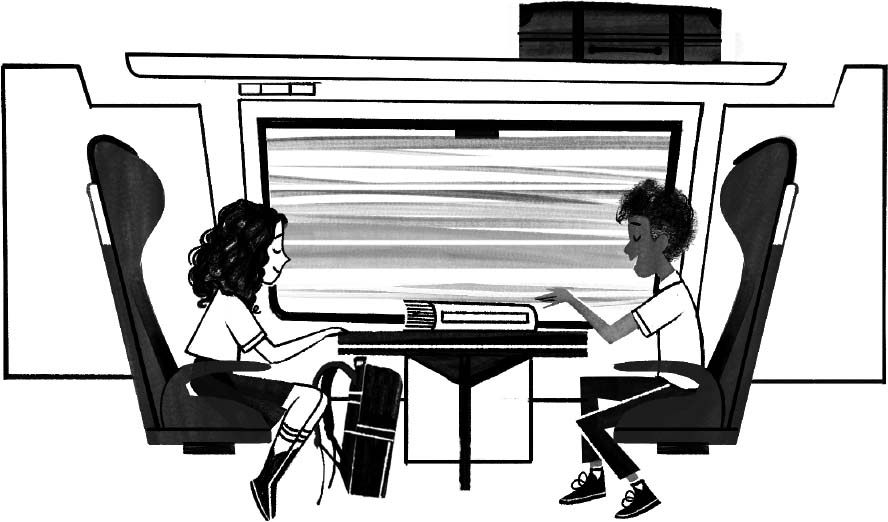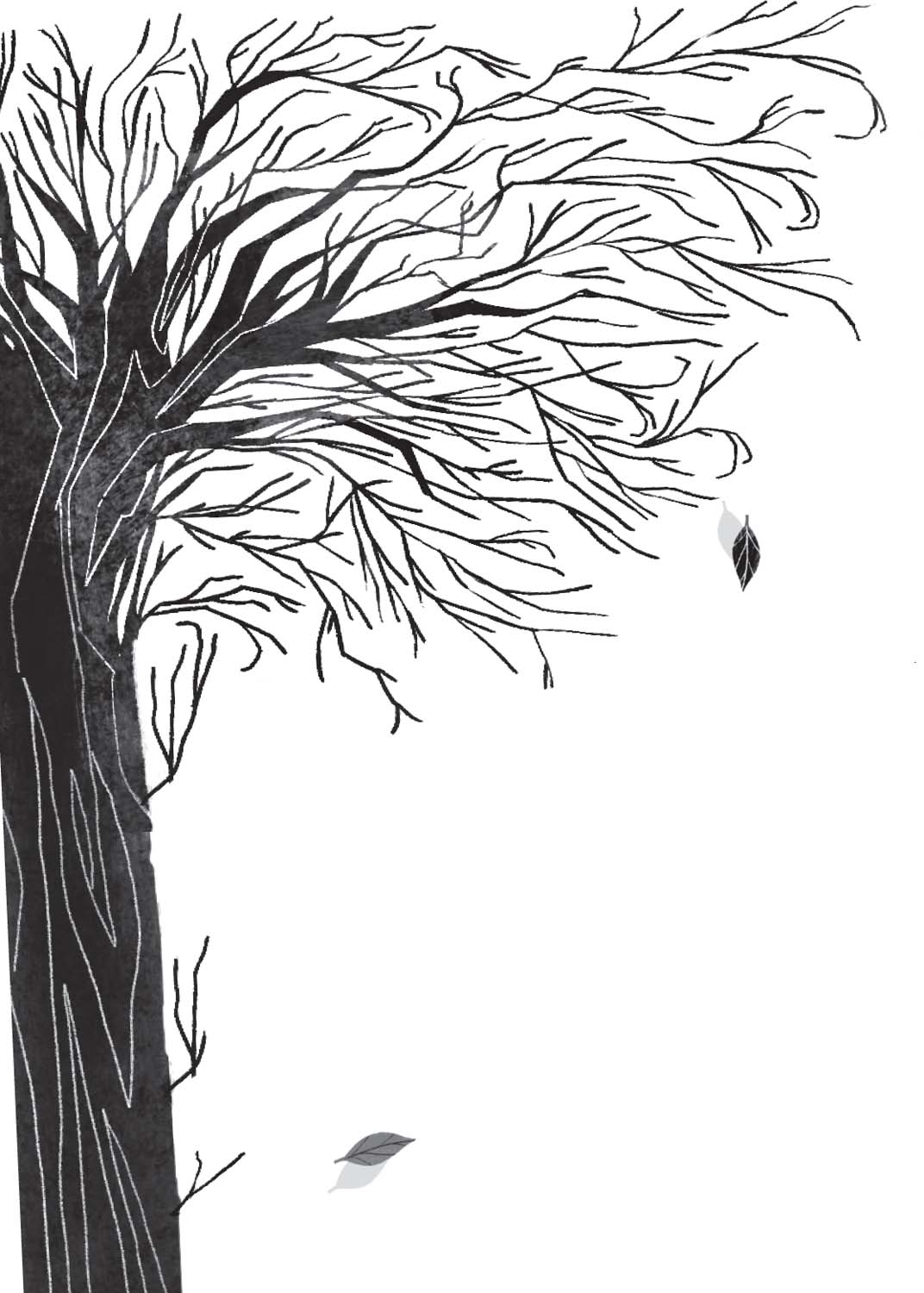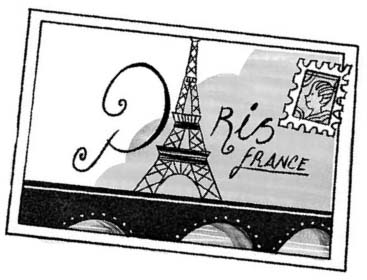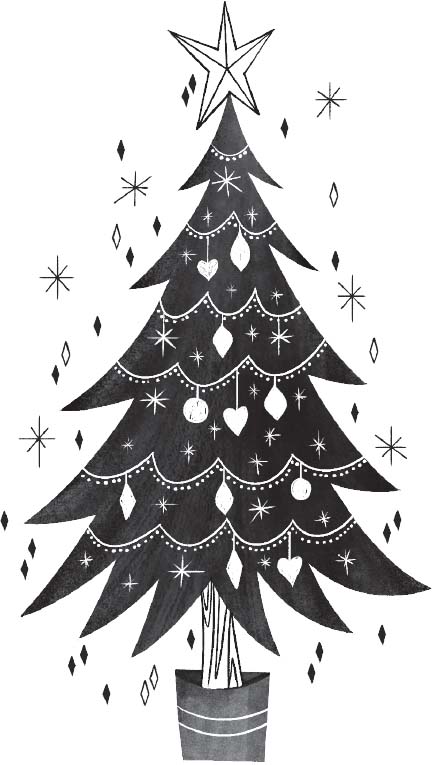![]() he taxi pulled up at St Pancras station, and Tilly, Oskar and Grandad walked through the airy, glass-ceilinged building that echoed with someone bashing out Christmas carols on a slightly out-of-tune public piano. They made their way through throngs of Tube-map-clutching tourists and festive travellers to the busy queues at the Eurostar entrance. Grandad helped them find their seats on the train, and tracked down the steward tasked with keeping an eye on Tilly and Oskar on the journey to Paris. After a good five minutes of fussing and checking to make sure they were still in possession of the various documents, currencies and phone numbers they needed, the steward intervened and took Grandad gently by the elbow.
he taxi pulled up at St Pancras station, and Tilly, Oskar and Grandad walked through the airy, glass-ceilinged building that echoed with someone bashing out Christmas carols on a slightly out-of-tune public piano. They made their way through throngs of Tube-map-clutching tourists and festive travellers to the busy queues at the Eurostar entrance. Grandad helped them find their seats on the train, and tracked down the steward tasked with keeping an eye on Tilly and Oskar on the journey to Paris. After a good five minutes of fussing and checking to make sure they were still in possession of the various documents, currencies and phone numbers they needed, the steward intervened and took Grandad gently by the elbow.
‘Sir, the train needs to leave now,’ he said, closing the door firmly. ‘I promise we’ll take good care of them.’ And with a train whistle and a last wave to Grandad, they were on their way.

‘Do you mind if I read?’ Tilly asked straight away, pulling Grandma’s stolen, or secretly borrowed – as Tilly preferred to think of it – fairytale book out of her backpack.
‘Oh. Sure,’ Oskar said. ‘Cool. I might go and explore, see if there’s a café. Do you want anything?’
‘I’m okay, thank you,’ Tilly said, without looking up. Oskar shrugged and set off, wobbling along the aisle with the rhythm of the moving train.
Tilly ran a careful finger down the contents page, keeping an eye out for anything that might tell her a little more about Grandma as a young woman mapping fairy tales. But there was nothing written in the book, and none of the slips of paper functioning as bookmarks said anything on them. With nothing else to go on, she chose a story marked with a page corner turned down, and settled back in her seat to read. It was ‘Little Red Riding Hood’ and Tilly was on high alert for anything that seemed different from how she remembered the story, when a strange, sticky, sweet smell wafted towards her. Assuming it was Oskar back with some snacks, she glanced up, but he was nowhere to be seen.
She looked around, searching for the source of the smell, and was surprised to see, through the window, that the train was running through a deep, dark forest. Tilly was sure that there weren’t any forests of this size within a twenty-minute train ride of north London, and yet there it was. The trees seemed to crowd in on every side, as if they were trying to reach inside the train with their spindly branches.

Tilly sat back, confused. She put the book on the table in front of her and bent down to fish her phone out of her bag so she could look at the maps app, but an insistent tapping noise startled her. She sat upright and saw trees pressing in unnaturally closely, their branches and leaves scratching and scraping at the train windows as it rushed by. Tilly looked around, searching for signs of worry among the other passengers, but everyone else was absorbed in their phones or books, or snoozing. Her breathing started to quicken in panic as the darkness closed in, casting the whole train into shadow, and yet still no one else seemed to react. A cracking noise like boots on a frozen lake echoed in Tilly’s ears, and she shrank back as a tree branch that suddenly seemed conscious and full of intent snaked its way through the window, as if the glass just wasn’t there, and curled its way up and across the ceiling of the train. More and more branches followed it, filling the train with treacherous ropes of bark. Leaves thrashed in the air as if caught in a hurricane. Tilly watched in terror as a sinuous branch crept under her feet and across the aisle towards an elderly man sleeping with his mouth slightly ajar. It slithered up his side and across his eyes, and Tilly felt as though she were trapped inside a horror film as the branch seemed to be making for his open mouth.
‘Stop!’ she shouted, panicked. ‘Wake up!’ She flung herself across the seats on to the sleeping man, trying to grab at the branch before it suffocated him.
‘What on earth do you think you’re doing?’ he spluttered, self-consciously wiping drool from the corner of his mouth.
‘I was stopping the trees!’ she said, but the moment the words were out of her mouth, the trees were nowhere to be seen. They had simply vanished, and wintery sun was spilling through the windows. The man was looking at her with concern.
‘What trees?’ he said. ‘Are your parents around?’
‘I’m so sorry,’ Tilly said, face burning with embarrassment, as she retreated across the aisle to her seat. ‘I just thought … I just saw … I’m so sorry, please just pretend I didn’t do that.’
The man glanced around, looking for parents, or a guard, but evidently decided it wasn’t worth the effort of complaining about her to someone.
‘Just stay on your seat,’ he said sternly, before leaning his head back and promptly falling asleep again.
Tilly pressed her face against the window, trying to catch a glimpse of the forest, but it was nowhere to be seen. Her tummy did a flip-flop of nervousness. She knew enough to realise that whatever it was she had just seen, it was not supposed to have happened.
‘Hey, you’ve dropped this,’ Oskar said, reaching down and picking up Grandma’s fairytale book, which had fallen awkwardly on the train floor in Tilly’s panic, crushing the page she had been reading. She turned it over, trying to smooth the page down and went pale as she noticed what was on the other side. An intricate black-and-white drawing of a deep, dark forest teased at the edges of the picture, as if it were trying to escape.
Oskar laid out a carton of orange juice and a greasy cardboard sleeve containing a microwaved cheese toastie cut in half. ‘I thought we could share,’ he said, pushing half the toastie towards Tilly. ‘I got an extra straw for the juice too. Hey,’ he looked at her closely. ‘Are you okay? You look really pale – are you travel sick? Do you want some water instead?’
‘No, I’m fine, thank you,’ Tilly said, not quite ready to share with Oskar what had happened. She was tired of always having strange confusing things happen to her, and for once she didn’t want to think about it at all. She gingerly picked up the sandwich, trying to avoid burning her fingers on the cheese. ‘I just thought I saw something weird out the window, but it was a trick of the light, I guess.’
‘Okay,’ Oskar said, sounding unconvinced as he poked two straws through the top of the juice carton. ‘Hang on.’ He reached forward and picked something out of Tilly’s fringe. ‘You’ve got a leaf in your hair!’
![]()
‘Weird,’ Tilly said, trying to sound surprised as she took the dry leaf from Oskar’s hand, and crumbled it under her fingers.
![]()
Two and a half hours later the Eurostar pulled into the Gare du Nord in Paris. Tilly and Oskar dragged their cases out on to a platform in a large station full of intricate green ironwork.

‘There!’ Oskar shouted, elbowing Tilly harder than he had meant to. He pointed at a man standing at the other end of the platform. ‘Let’s go!’
When the man spotted them, his face broke into a wide grin and he met them halfway down the platform, scooping Oskar up into a bear hug.
‘And you must be Matilda,’ he said in perfect English with a broad French accent. He was a tall man with dark hair and stubble, wearing slim-cut trousers and brogues, and an elegant black coat. ‘I am Oskar’s father, Gabriel.’
‘Hi,’ Tilly said, feeling overwhelmingly shy. ‘I’m Tilly, really, not Matilda. Well, I am Matilda. But everyone calls me Tilly.’
‘Welcome, Tilly,’ Gabriel said, smiling. ‘We are so glad you are here.’
‘Thank you for having me,’ she said politely.
‘It’s our absolute pleasure,’ Gabriel said. ‘It’s so wonderful you could come with Oskar – he and Mary both talk about you so much. Let’s get you home and have some lunch. On y va!’
![]()
They travelled via the Paris Metro, which was nearly but not quite like the London Underground, to a stop only fifteen minutes away. There they climbed up a steep set of stairs and emerged on to the streets of Paris, which curled around Tilly like something out of a story themselves, all frost and magic and romance. They were standing on a narrow street resting under a fine layer of snow, and the air was prickly fresh around them. A green metal sign arched over their heads with the name of the station in elaborate black writing, and cafés squeezed up next to each other along the other side of the road. Despite the cold, several of them still had chairs and tables on the street hiding under snow-laden striped canopies, and an elegant French couple sat drinking hot chocolate outside one of them.
They followed the narrow road to its end and turned into a small, frosty square. Pale-stone buildings were wrapped with dark vines that would turn into purple wisteria in the summer. They headed towards one corner of the square and to a big old-fashioned wooden door that opened on to a flight of stone steps.
‘No lift, I’m afraid,’ Gabriel said. ‘But we’re only on the second floor, so not too bad. Welcome, Tilly, and welcome home, Oskar – let’s go inside and get warm.’
They climbed the stairs to a periwinkle-blue door that opened off a small landing. As Gabriel opened the door the delicious smell of festive spices of nutmeg and clove filled the air, and behind that was the distinct pine-smell of a real Christmas tree. Tilly could hear Handel’s Messiah playing from another room, as Gabriel ushered them in.
‘Come in, come in,’ Oskar said excitedly, leading her through the hallway and depositing his shoes on top of an existing heap underneath a mirror. Tilly copied him, trying to add her shoes sort-of neatly, and Gabriel took her coat and scarf, hanging them on two of a series of hooks on the opposite wall.
‘Welcome, welcome!’ a voice said, and a petite woman with a broad smile appeared from a door. ‘Oskar, look how much you’ve grown!’ she said, giving him a hug. ‘And this must be Matilda! It is wonderful to meet you; thank you for coming to stay with us. I am Marguerite, Gabriel’s wife.’ She leaned forward and kissed Tilly on both cheeks. She smelled like fancy perfume.
‘Thank you for having me,’ Tilly said. ‘You can call me Tilly.’
‘Tilly! How lovely! Now come in out of the hallway. We’ll take your bags up and show you your room once you’ve warmed up and had some lunch.’
The three of them followed Marguerite into the high-ceilinged living room, which was a cacophony of colours and textures. The space was dominated by large windows that looked out over Paris, and there were two chairs under the window with colourful blankets draped over their backs. A Christmas tree was squeezed into one corner, decorated entirely with white fairy lights and silver decorations, and the source of the classical music Tilly had heard was revealed to be a record player perched on top of a cabinet full of vinyl records.
They went through to the kitchen, which had another tall window that would open out on to a tiny balcony when the weather was sunnier. There was a wooden table pushed against the opposite wall, piled with food – a fresh baguette generously sliced, a plate with three different kinds of cheeses, a big patterned bowl full of salad leaves and a matching smaller bowl heaped with green and black olives. As they all settled down for lunch, talking of trains, and cheese, and Christmas, Tilly thought how nice it would be to have two days without any bookwandering, or bookbinding, or any kind of book magic at all.

